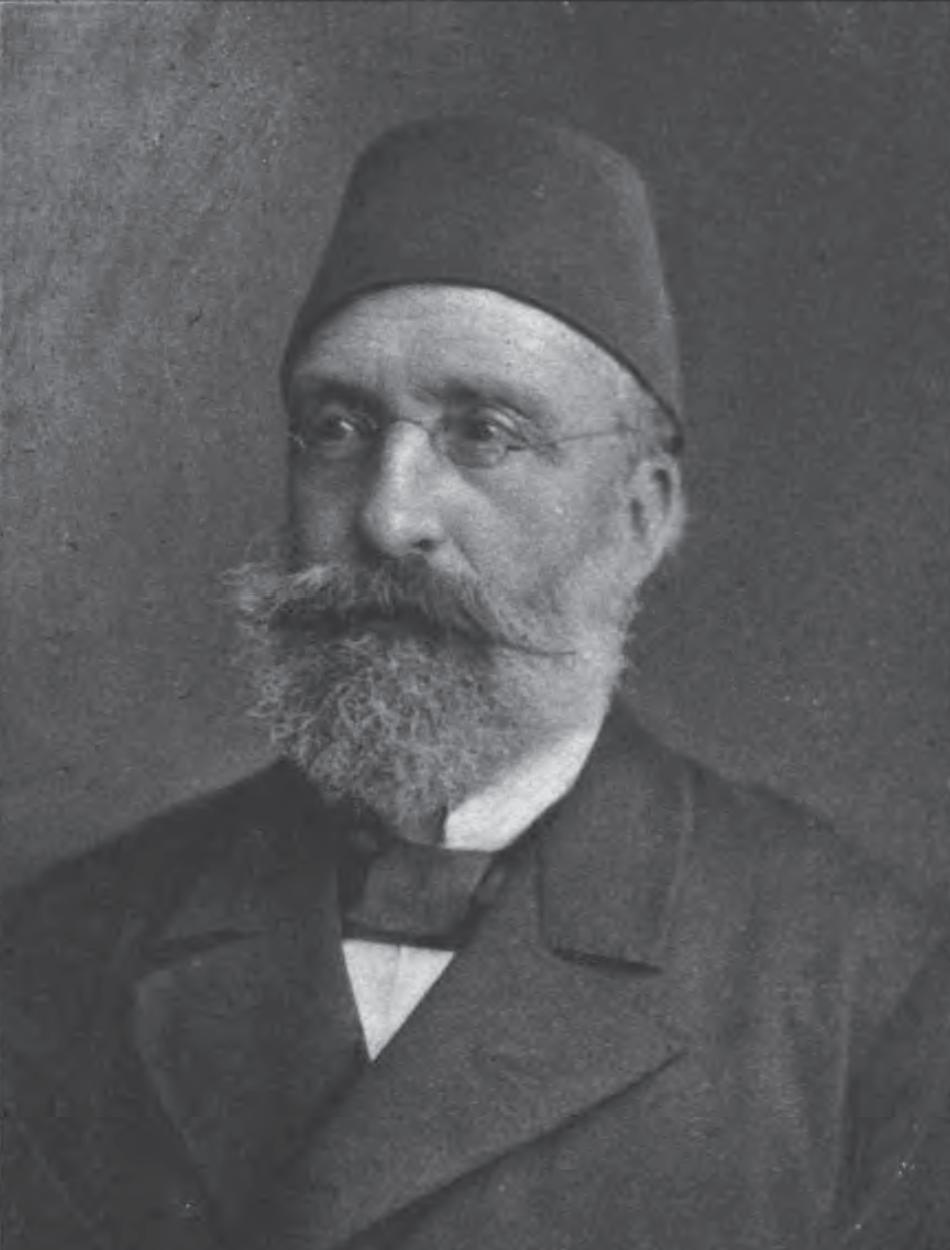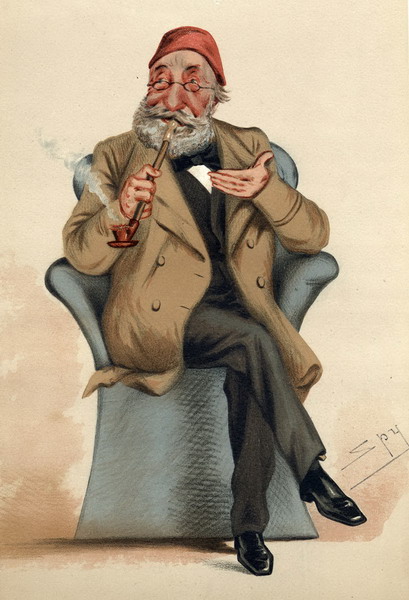 |
| Midhat Pasha |
Midhat Pasha entered the Ottoman government service as a young man and rose quickly within the ranks. He worked in Syria and then in Istanbul before being appointed governor (vali) over Bulgaria in 1857. Midhat quickly restored order to the rebellious province and instituted a wide-ranging series of modernization projects.
While he supported modernization of the empire, Midhat opposed local nationalist sentiments and repressed Bulgarian nationalism. His anti-panSlavic stance incurred the enmity of Russia and owing to Russian pressure he was withdrawn from Bulgaria and brought back to Istanbul.
Midhat served as provincial governor over Baghdad from 1869–72. As governor of Baghdad, he in effect ruled all of Iraq. He extended Ottoman influence into the Arabia Peninsula and, as in Bulgaria, worked to modernize the territory. He modernized Baghdad with the construction of new roads and a bridge across the Tigris River
  |
He also improved shipping lanes for the Shatt al-Arab leading into the Persian Gulf and enlarged irrigation projects to increase productivity and income. Midhat also efficiently applied Ottoman Land Law to regularize and register land titles and the collection of taxes.
Midhat served as Grand Vizier from 1876–77 and was accorded the title of pasha. However, Midhat’s efficiency, financial acuity, and honesty threatened many increasingly corrupt officials who frequently intrigued against him. On the other hand, the pro-reform Young Ottomans called Midhat “the ideal statesman.”
Midhat supported the programs of the Young Ottomans who wanted the implementation of a constitutional monarchy over the Ottoman Empire. Midhat and the Young Ottomans sought to halt the further erosion of Ottoman financial independence to European creditors and to prevent national uprisings in the Balkans.
In 1876, the Young Ottomans and Midhat were instrumental in ousting Sultan Abd al-Aziz, who was subsequently assassinated, and placing Murad V on the throne. Murad V only served a few months before mental illness forced his removal. His brother Abdul Hamid II became the new sultan after promising to implement the constitution written by Midhat and to support reforms.
 |
| Midhat Pasha in cartoon version |
To escape further persecution, Midhat then toured Europe and observed the House of Commons in session in London. He was called back to serve as governor of Syria, but within months the sultan reconsidered and brought him back to be tried with others for the killing of Abd al-Aziz.
In a highly biased trial, Midhat was sentenced to death, but following pressure from the British his sentence was commuted to banishment. He was exiled to Taif, Arabia, where an agent of the sultan probably was responsible for his death by strangulation in 1884.